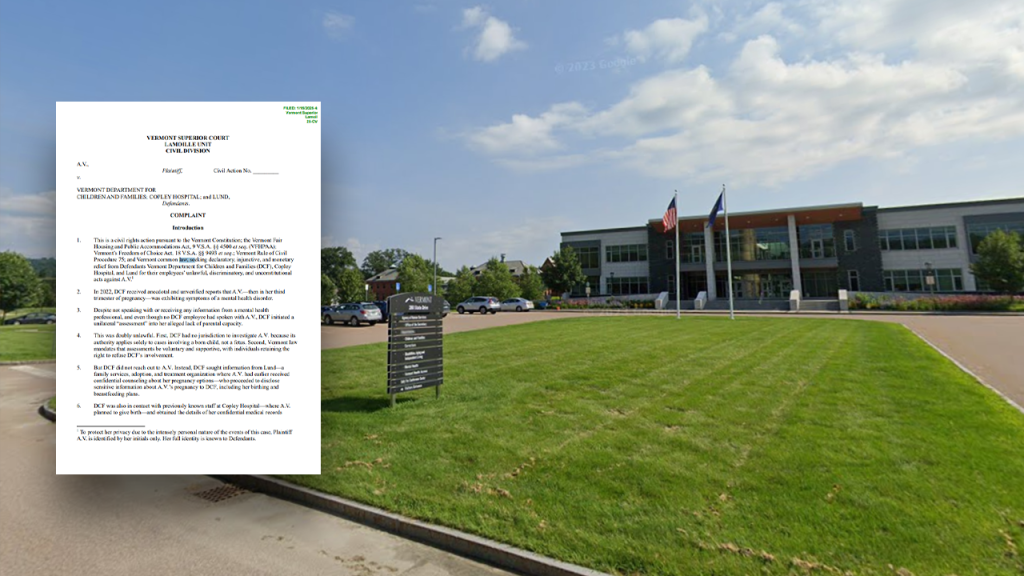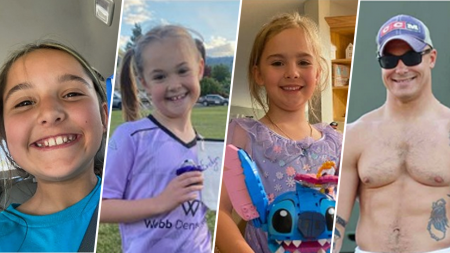This lawsuit centers around A.V., a pregnant woman residing in Vermont, who alleges that the state’s child welfare agency, the Department for Children and Families (DCF), orchestrated a clandestine investigation into her mental health, ultimately leading to the unwarranted seizure of her newborn daughter. The legal action, spearheaded by the ACLU of Vermont and Pregnancy Justice, accuses the DCF of fabricating concerns about A.V.’s mental well-being to justify their intervention. The lawsuit further claims that the DCF maintains a covert surveillance program targeting pregnant women deemed “unsuitable” mothers, raising serious questions about the agency’s practices and respect for individual rights.
The ordeal began in January 2022, when the director of A.V.’s homeless shelter reported unsubstantiated claims about her mental state to the DCF. The agency, without A.V.’s knowledge or consent, initiated an investigation, contacting her counselor, midwife, and a hospital social worker. This intrusion into A.V.’s private life continued throughout her pregnancy, culminating in the immediate removal of her daughter upon birth. A.V. was entirely unaware of the ongoing investigation and the precarious position she was in. The lawsuit underscores the DCF’s overreach, including their attempt to obtain a court order mandating a cesarean section, despite A.V. ultimately agreeing to the procedure. The ordeal lasted seven months before A.V. regained full custody of her child.
The lawsuit alleges a pattern of DCF surveillance targeting pregnant women based on unofficial criteria and tracked on a “high-risk pregnancy” list. This claim paints a disturbing picture of potential systemic discrimination against pregnant women, raising concerns about the agency’s true motives and the extent of their surveillance practices. While the DCF has declined to comment until a thorough review of the accusations is complete, the lawsuit’s revelations have sparked serious concerns about the agency’s respect for individual rights and the potential for abuse of power. The counseling center and hospital named in the lawsuit have responded by acknowledging the gravity of the situation and pledging to investigate further.
The case highlights the complex intersection of parental rights, child welfare, and reproductive autonomy. The lawsuit contends that the DCF’s actions represent a blatant violation of A.V.’s rights, particularly given Vermont’s constitutional protection of reproductive autonomy. This case raises broader questions about the extent to which state agencies can intervene in the lives of pregnant women, particularly when those interventions are based on unsubstantiated claims or biased perceptions. The legal challenge also underscores the crucial need for transparency and accountability within child welfare systems to safeguard against potential abuses of power.
The implications of this case extend beyond Vermont, as similar practices may exist in other states. The lawsuit’s accusations underscore a concerning trend of increased scrutiny and control over pregnant women, particularly following the overturning of Roe v. Wade. This case raises alarms about the potential for state agencies to exploit the vulnerability of pregnant women, particularly those facing challenging circumstances like homelessness. The lawsuit’s call for an end to the alleged surveillance program underscores the importance of protecting the rights of pregnant women and ensuring that their reproductive choices are respected.
This lawsuit serves as a critical reminder of the delicate balance between protecting children and respecting the fundamental rights of parents. The accusations against the DCF raise serious questions about the agency’s methods and the potential for overreach, particularly in the context of reproductive health decisions. The case underscores the importance of due process, transparency, and accountability within child welfare systems to safeguard against potential abuses of power, and highlights the need for robust legal protections for pregnant women to prevent unwarranted state intervention in their lives. The outcome of this lawsuit will have significant implications not only for A.V. but also for the broader landscape of reproductive rights and child welfare practices in Vermont and potentially across the nation.










